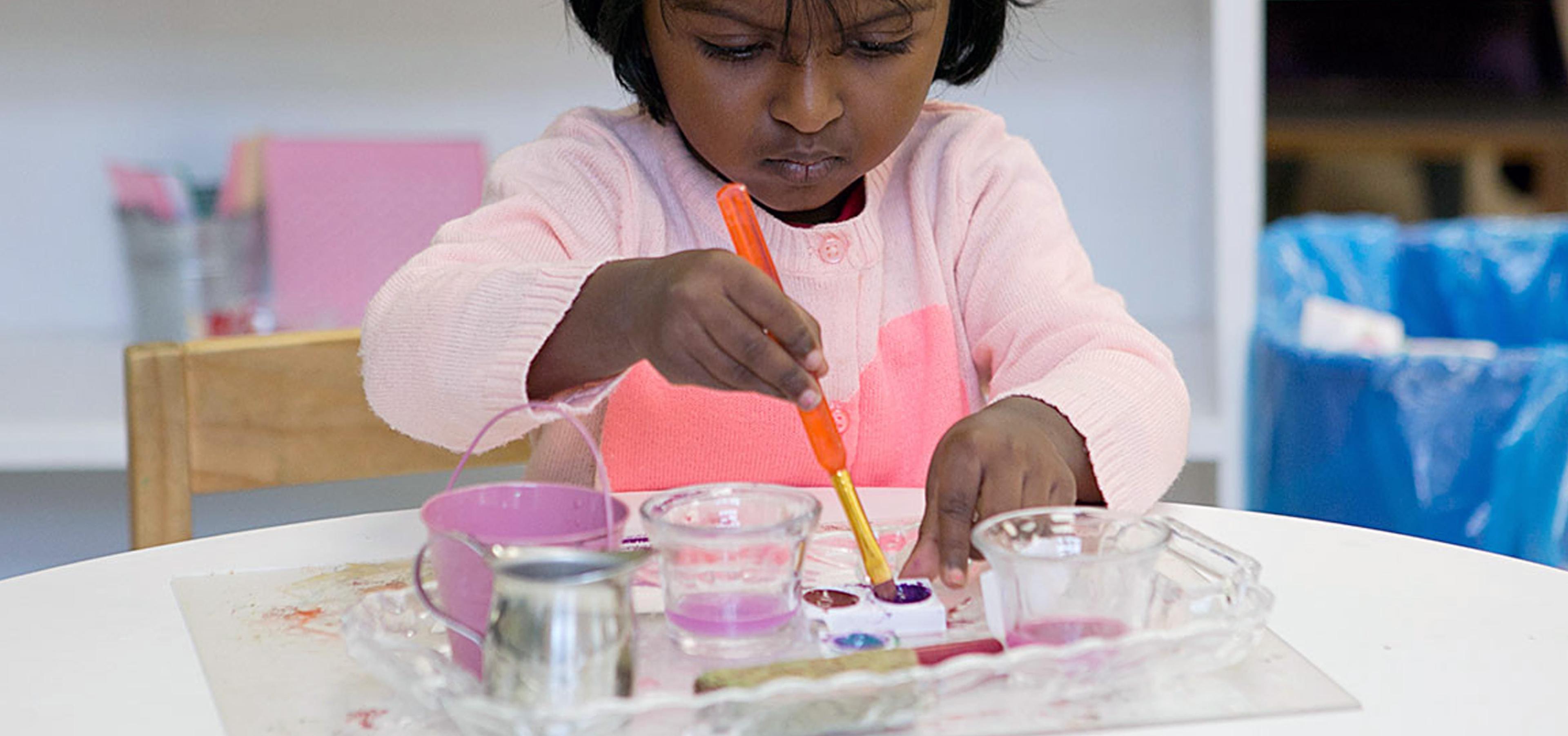Montessori education is a child-centred educational approach that emphasises individuality, independence, and self-directed learning. At the heart of the Montessori approach is the belief that children have an innate desire to learn and that they will naturally explore and discover their environment if given the freedom to do so.
In a Montessori classroom, children are not taught in the traditional sense. Instead, they are provided with an environment that is carefully prepared to encourage exploration and discovery. The materials in a Montessori classroom are designed to be self-correcting, allowing children to learn through trial and error.
So, what do Montessori 3-year-olds do all day? The answer is simple: they learn through play and exploration.
Montessori classrooms are designed to be multi-age environments, with children of different ages working together. This allows younger children to learn from older children and older children to develop leadership skills.
At the age of 3, children are typically in the first year of the Montessori Primary program.
Here are some of the activities that they might engage in during the course of a typical day:

Practical Life Skills:
In a Montessori classroom, children are taught practical life skills such as pouring, spooning, and washing dishes. These skills not only help children develop fine motor skills but also promote independence and self-confidence.
Sensorial Activities:
Sensorial activities are designed to help children explore their senses. Montessori classrooms are equipped with materials that help children develop their sense of touch, taste, smell, sight, and hearing.
Language Development:
Language development is a key focus of the Montessori approach. Children are introduced to language through a variety of activities such as stories, songs, and games. They are also encouraged to develop their writing and reading skills.
Mathematics:
Montessori classrooms are equipped with materials that help children learn mathematical concepts such as counting, addition, subtraction, and multiplication. These materials are designed to be self-correcting, allowing children to learn through trial and error.
Art and Creativity:
Montessori classrooms place a strong emphasis on art and creativity. Children are provided with a variety of materials such as paint, clay, and markers to express themselves creatively.
Outdoor Play:
In addition to indoor activities, Montessori 3-year-olds also spend time playing outdoors. Outdoor play is an important part of the Montessori approach, as it allows children to develop gross motor skills and connect with nature.
In conclusion, Montessori 3-year-olds spend their days engaged in a variety of activities that promote exploration, discovery, and self-directed learning. By providing children with an environment that is carefully prepared to encourage exploration and discovery, Montessori classrooms help children develop independence, self-confidence, and a lifelong love of learning.

